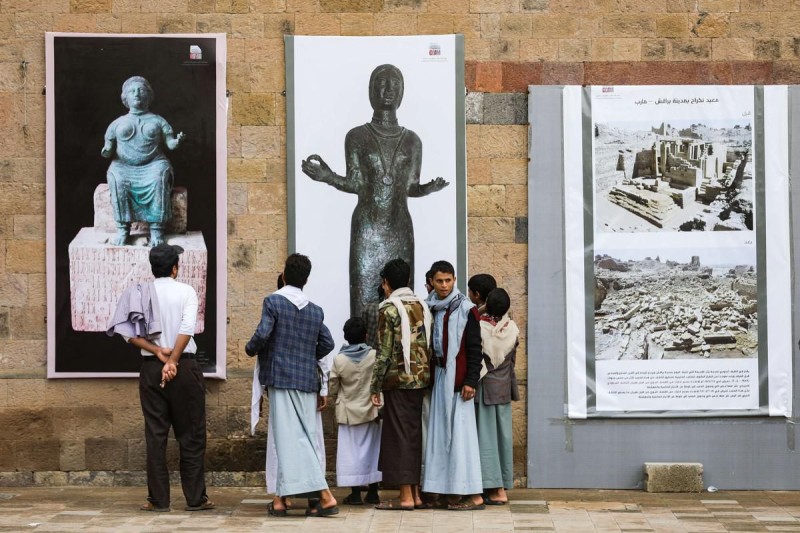First Batch of New Saudi Oil to Yemen Arrives in Aden


The first batch of the Saudi oil derivatives grant, worth $200 million, arrived in Aden on Wednesday. The grant comes as an extension of Saudi Arabia’s continuous support to the Yemeni people under the directives of King Salman and Crown Prince Mohammed Bin Salman.
Yemenis are hopeful that the grant will lead improve power generation in all governorates.
Saudi and Yemeni sources said this first batch comprises 45,000 metric tons of diesel and 30,000 metric tons of mazut, to be used in the operation of 70 electricity stations.
Yemeni Minister of Electricity and Energy Manaa Yaslam bin Yamin extended gratitude and appreciation for the Kingdom of Saudi Arabia, under the leadership of the Custodian of the Two Holy Mosques and the Crown Prince, for what it provides of assistance to the Yemeni people in various fields.
He stressed that the grant comes amid difficult circumstances and will contribute to operating power plants and finding solutions to problems in the electricity sector.
“We, in coordination with all stakeholders and with the support of Saudi Development and Reconstruction Program for Yemen (SDRPY), seek to benefit from the grant in rehabilitating and increasing the efficiency of the electric system across Yemeni governorates,” Yaslam bin Yamin said, according to the Saudi News Agency (SPA).
Meanwhile, Yemeni Minister of Planning and International Cooperation Waed Badhib stressed that the grant is one of the direct aspects of support for the Yemeni people and direct support to the general budget and a direct support to the needs of the society and people, which will contribute to alleviating the repercussions of power cuts that add burdens to citizens, the budget and public revenues of the state.
“This grant is an extension of development projects and initiatives by Saudi Arabia through SDRPY, where the total value of previous grants amounts to $4.2 billion,” Badhib said.
He revealed that the Kingdom made great contributions in Yemen, such as developing the health sector via the project to operate and administrate the Aden Public Hospital, Aden International Airport and Al-Ghaydah Airport in Al-Mahrah Governorate, in addition to projects to establish model schools and other development projects.
The new oil derivatives grant is an affirmation of Riyadh’s keenness to achieve security, stability and development for the Yemeni people, and an extension of the previous grants with a total of $4.2 billion.
The latest Saudi grant was worth $422 million completed over a year, and it contributed to economic stability, boosting the budget of the Yemeni government and raising the purchasing power of Yemeni citizens, improving security conditions, enhancing the service sector, developing citizens' living conditions, increasing the rate of daily service hours for the operation of power plants and ensuring the self-operation of power plants in Yemen.
The previous grants of oil derivatives provided by SDRPY helped to partially reduce government spending.
The grants also doubled the electricity production capacity, reaching a target of 2,828 gigawatt-hours (GWh) during the operating period of the stations, as well as contributing to covering the needs of power stations in Yemen.
Moreover, the grants played a role in contributing to limiting the depletion of the Central Bank of Yemen’s foreign currency reserves to purchase oil derivatives from global markets to generate electricity.
This resulted in reducing the selling prices of fuel from the international prices for electricity generation by 79% for diesel fuel, and 94% for mazut, from May 2021 to April 2022.
The previous oil derivatives grants provided electric power to 760,000 people dealing with the General Electricity Corporation, with an average consumption of 37-kilowatt hours for each of them.

Sana’a – The General Authority for Antiquities and Museums, operating under the control of the Houthi militia in the occupied capital S…

Hadramout — UNESCO has officially inscribed Al-Dan Hadrami, a traditional poetic and musical art form from Yemen’s Hadramawt region, on…

NewYourk  -- The renowned auction house Sotheby’s has revealed plans to present one of the rarest surviving Yemenite Torah scrolls in it…